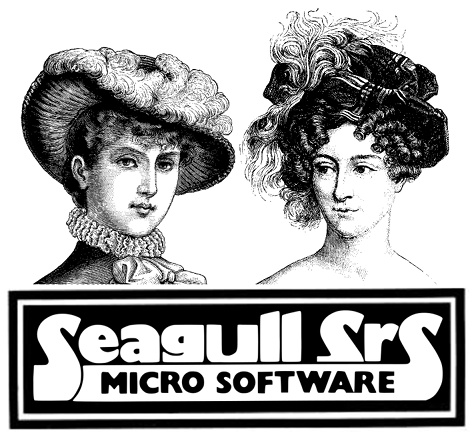7.8 KiB
diskii
Note: diskii is not stable yet! I don't expect to remove functionality, but I'm still experimenting with the command syntax and organization, so don't get too comfy with it.
diskii-the-tool is a commandline tool for working with Apple II disk images. Given that AppleCommander already does everything, it's not terribly necessary. It is, however, mine. Minor benefits (right now) are binaries you can copy around (no Java needed), support for Super-Mon symbol tables on NakedOS disks, and creation of "Standard Delivery" disk images.
diskii-the-library is probably more useful: a library of disk-image-manipulation code that can be used by other Go programs.
diskii's major disadvantage is that it mostly doesn't exist yet.
It rhymes with “whiskey”.
Discussion/support is on the apple2infinitum Slack (invites here).
Examples
Get a listing of files on a DOS 3.3 disk image:
diskii ls dos33master.dsk
… or a ProDOS disk image:
diskii ls ProDOS_2_4_2.po
… or a Super-Mon disk image:
diskii ls Super-Mon-2.0.dsk
Reorder the sectors in a disk image:
diskii reorder ProDOS_2_4_2.dsk ProDOS_2_4_2.po
Goals
Eventually, it aims to be a comprehensive disk image manipulation tool, but for now only some parts work.
The library code aims (a) to support the commandline tool operations, and (b) to replace the "read and write disk images" code of the goapple2 emulator.
Current disk operations supported:
| Feature | DOS 3.3 | ProDOS | NakedOS/Super-Mon |
|---|---|---|---|
| basic structures | ✓ | ✓ | ✓ |
| ls | ✓ | ✓ | ✓ |
| dump | ✗ | ✗ | ✗ |
| put | ✗ | ✗ | ✗ |
| dumptext | ✗ | ✗ | ✗ |
| delete | ✗ | ✗ | ✗ |
| rename | ✗ | ✗ | ✗ |
| put | ✗ | ✗ | ✗ |
| puttext | ✗ | ✗ | ✗ |
| extract (all) | ✗ | ✗ | ✗ |
| lock/unlock | ✗ | ✗ | ✗ |
| init | ✗ | ✗ | ✗ |
| defrag | ✗ | ✗ | ✗ |
Installing/updating
Assuming you have Go installed, run go get -u github.com/zellyn/diskii
You can also download automatically-built binaries from the latest release page. If you need binaries for a different architecture, please send a pull request or open an issue.
Short-term TODOs/roadmap/easy ways to contribute
My rough TODO list (apart from anything marked (✗) in the disk operations matrix is listed below. Anything that an actual user needs will be likely to get priority.
- Make
putaccept load address for appropriate filetypes. - Fix
golinterrors - Implement
GetFilefor prodos - Implement
PutFilefor prodos - Implement
Deletefor Super-Mon - Implement
Deletefor DOS 3.3 - Implement
Deletefor ProDOS - Add and implement the
-lflag forls - Make
OperatorFactory.SeemsToMatchmore sophisticated for ProDOS - Make
OperatorFactory.SeemsToMatchmore sophisticated for DOS 3.3 - Make
OperatorFactory.SeemsToMatchmore sophisticated for NakedOS - Build per-platform binaries for Linux, MacOS, Windows.
Related tools
- http://a2ciderpress.com/ - the great grandaddy of them all. Windows only, unless you Wine
- http://retrocomputingaustralia.com/rca-downloads/ Michael Mulhern's MacOS package of CiderPress
- http://applecommander.sourceforge.net/ - the commandline, cross-platform alternative to CiderPress
- http://brutaldeluxe.fr/products/crossdevtools/cadius/index.html - Brutal Deluxe's commandline tools
- https://github.com/paleotronic/dskalyzer - cross-platform disk analysis tool (also written in Go!) from the folks who brought you Octalyzer.
- https://github.com/cybernesto/dsktool.rb
- https://github.com/cmosher01/Apple-II-Disk-Tools
- https://github.com/madsen/perl-libA2
- https://github.com/markdavidlong/AppleSAWS
- https://github.com/dmolony/DiskBrowser
- https://github.com/deater/dos33fsprogs
- https://github.com/jtauber/a2disk
- https://github.com/datajerk/c2d
- https://github.com/thecompu/Driv3rs - A Python Script to work with Apple III SOS DSK files
- http://www.callapple.org/software/an-a-p-p-l-e-review-shink-fit-x-for-mac-os-x
- https://github.com/dmolony/DiskBrowser - graphical (Java) disk browser that knows how to interpret and display many file formats
- https://github.com/slotek/apple2-disk-util - ruby
- https://github.com/slotek/dsk2nib - C
- https://github.com/robmcmullen/atrcopy - dos3.3, python
Notes
Disk formats
.do.po.dsk- could be DO or PO. When in doubt, assume DO.
| Physical Sectors | DOS 3.2 Logical | DOS 3.3 Logical | ProDOS/Pascal Logical | CP/M Logical |
|---|---|---|---|---|
| 0 | 0 | 0 | 0.0 | 0.0 |
| 1 | 1 | 7 | 4.0 | 2.3 |
| 2 | 2 | E | 0.1 | 1.2 |
| 3 | 3 | 6 | 4.1 | 0.1 |
| 4 | 4 | D | 1.0 | 3.0 |
| 5 | 5 | 5 | 5.0 | 1.3 |
| 6 | 6 | C | 1.1 | 0.2 |
| 7 | 7 | 4 | 5.1 | 3.1 |
| 8 | 8 | B | 2.0 | 2.0 |
| 9 | 9 | 3 | 6.0 | 0.3 |
| A | A | A | 2.1 | 3.2 |
| B | B | 2 | 6.1 | 2.1 |
| C | C | 9 | 3.0 | 1.0 |
| D | 1 | 7.0 | 3.3 | |
| E | 8 | 3.1 | 2.2 | |
| F | F | 7.1 | 1.1 |
Note: DOS 3.2 rearranged the physical sectors on disk to achieve interleaving.
RWTS - DOS
Sector mapping: http://www.textfiles.com/apple/ANATOMY/rwts.s.txt and search for INTRLEAV
Mapping from specified sector to physical sector:
00 0D 0B 09 07 05 03 01 0E 0C 0A 08 06 04 02 0F
So if you write to "T0S1" with DOS RWTS, it ends up in physical sector 0D.
Commandline examples for thinking about how it should work
diskii ls dos33.dsk diskii --order=do ls dos33.dsk diskii --order=do --system=nakedos ls nakedos.dsk
